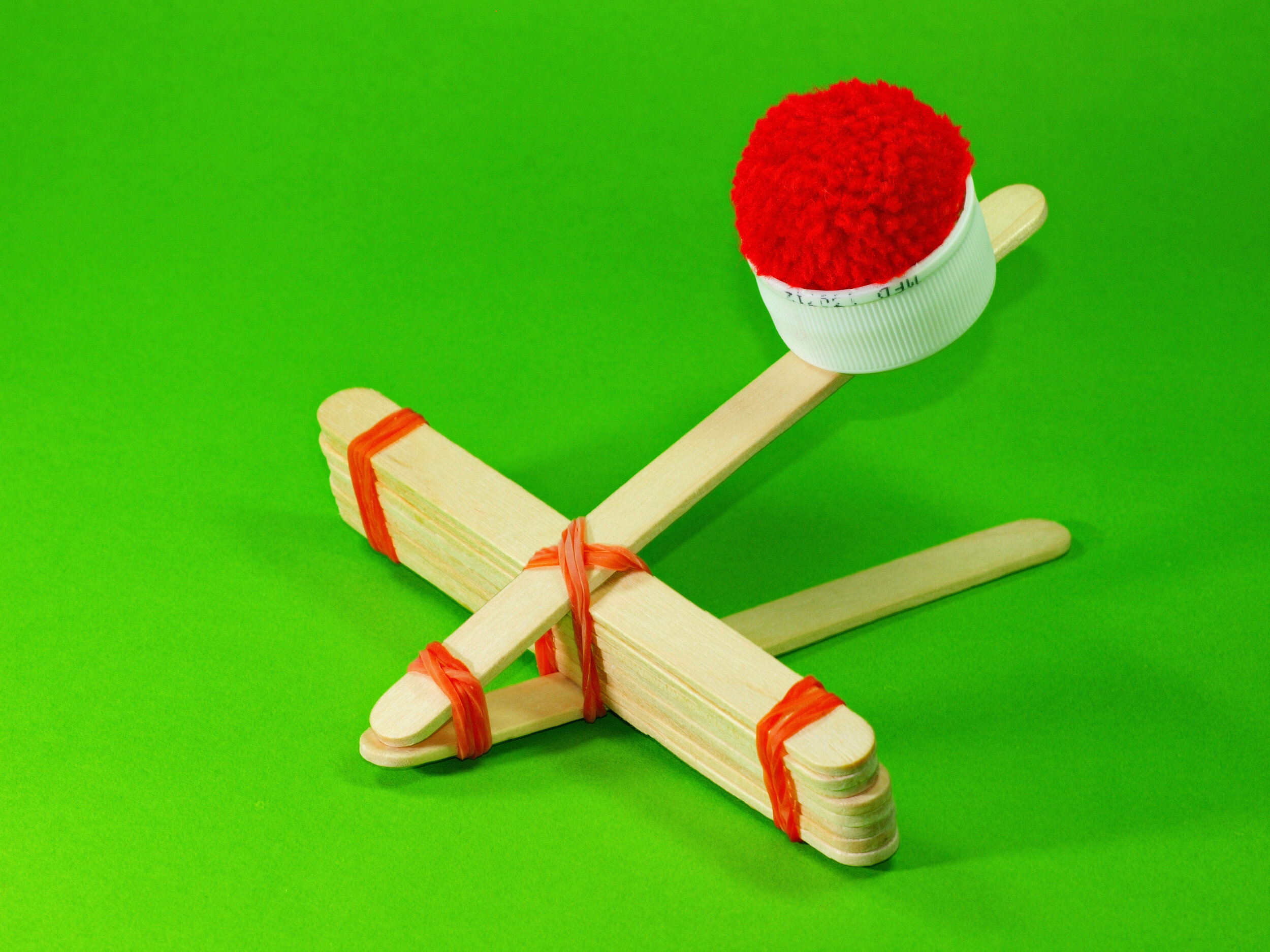Catapult Engineering
In this activity, we are going to explore the science of catapults! This simple experiment brings authentic science into the classroom as we compare the effect of catapult tension on the distance of a launched object.
Let’s Begin!
Learning Objectives/Opportunities
Build basic knowledge about physics, motion, and catapults
Science process skills: observing, measuring, experimentation, and recording findings
Developmental Skills: fine and gross motor skills
Materials:
Popsicle sticks
Rubber bands
Tape
Small cupcake liner
Pom-Poms
For little engineers, building the catapults and tension bundles ahead of time may be more productive. The aim of this activity is not about engineering a complete catapult, but learning about the engineering design cycle to improve existing catapult models to meet goals and challenges.
For older engineers, challenge students to make their own catapults.
Build Catapults
Lay two popsicle sticks on top of one another and wrap a rubber band around one end
Tape or glue the cup near the top of one of the two sticks, but leave a little room at the end
Pre-make as many catapults as needed for each student
Build Tension Bundles
Make a popsicle stack of 3 popsicles.
Bundle these together with a rubber band at each end.
Repeat those two steps for various sizes: Make bundles of 4, 5, 6, 7, 8, 9, and 10 popsicle sticks.
Repeat this step so each student has bundles 3-10.
Prepare the space
Clear the area for launching practice
If desired, measure out a distance of 10 feet, placing a line of painter’s tape at each foot. This will allow for distance measuring.
Activity Directions
Have students line up with their catapults at the beginning of the launching site.
Have students start with the 3 popsicle bundle. Place the bundle between the catapult’s two popsicle sticks, near the rubber band at the bottom.
Put a pom-pom ball in the liner
Launch!
Measure how far the pop-poms went.
Increase the tension of the catapult by increasing the number of popsicles in the bundle.
Observe how the distance changes as the tension increases.
Engineering Challenges
Distance: Can you get the pom-pom to go further?
Height: Can you get it to go higher?
Accuracy: Can you get it to a specific location such as in a cup or container located somewhere in the launch site
Questions to explore with students:
How does the tightness of the rubber bands affect the catapult’s performance?
How does the placement of the popsicle stick bundle change the performance?
Is there an effect of where the pom-pom is in the cup when it is launched?
Besides increasing the number of popsicle sticks is there another way to increase or decrease the catapult’s tension such as looser/tighter rubber bands and using more pressure when launching.

